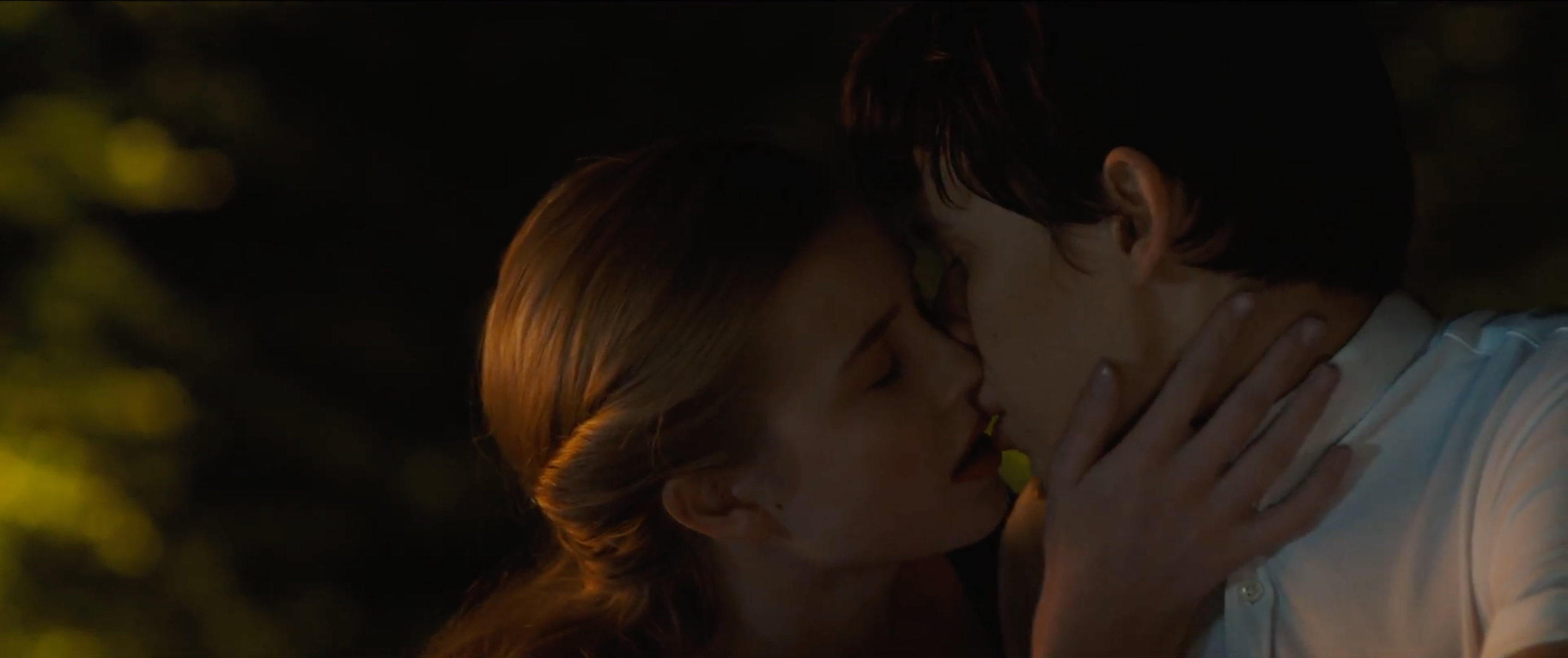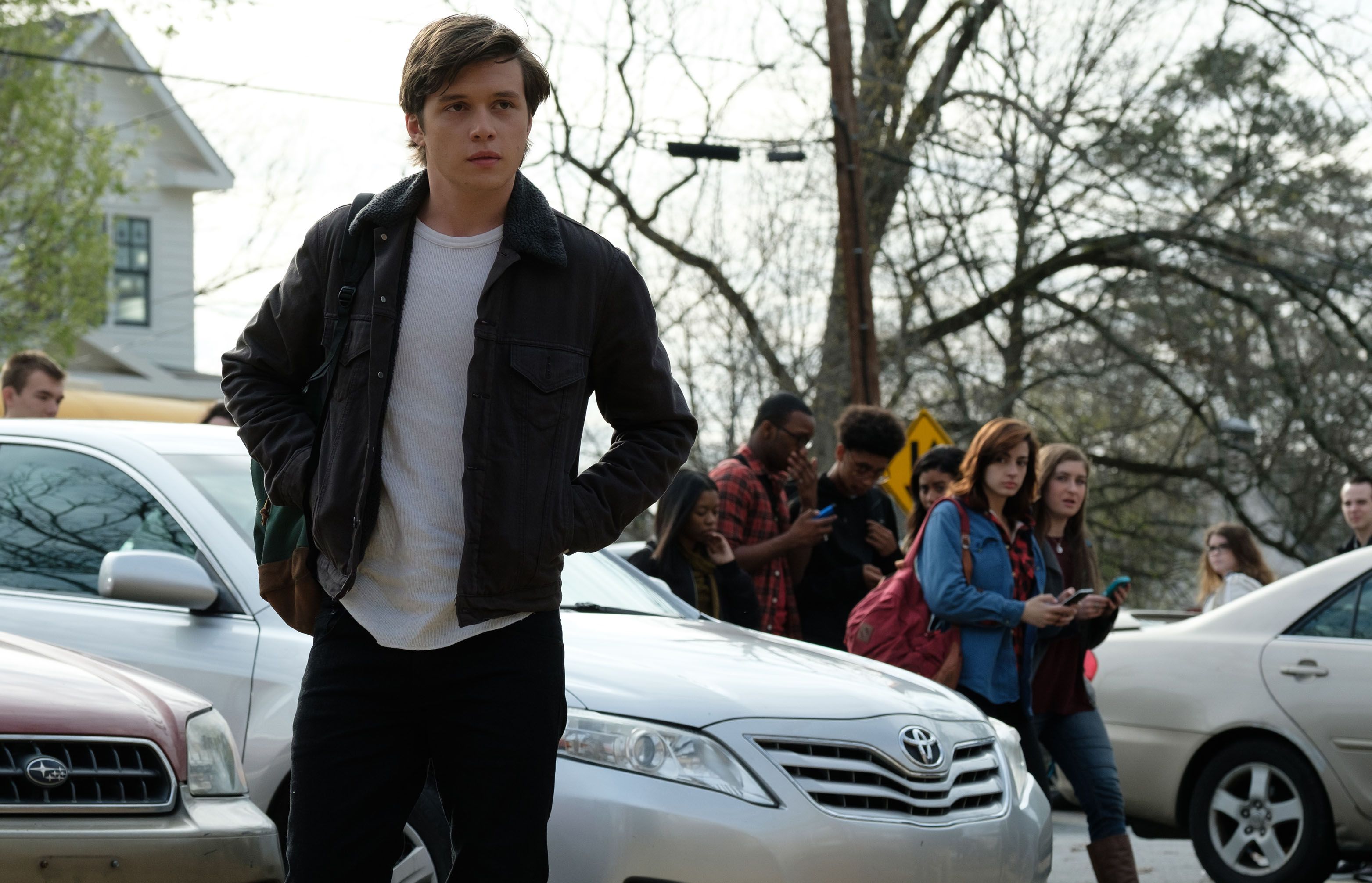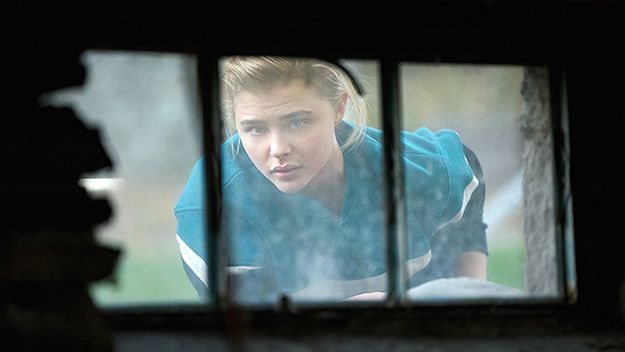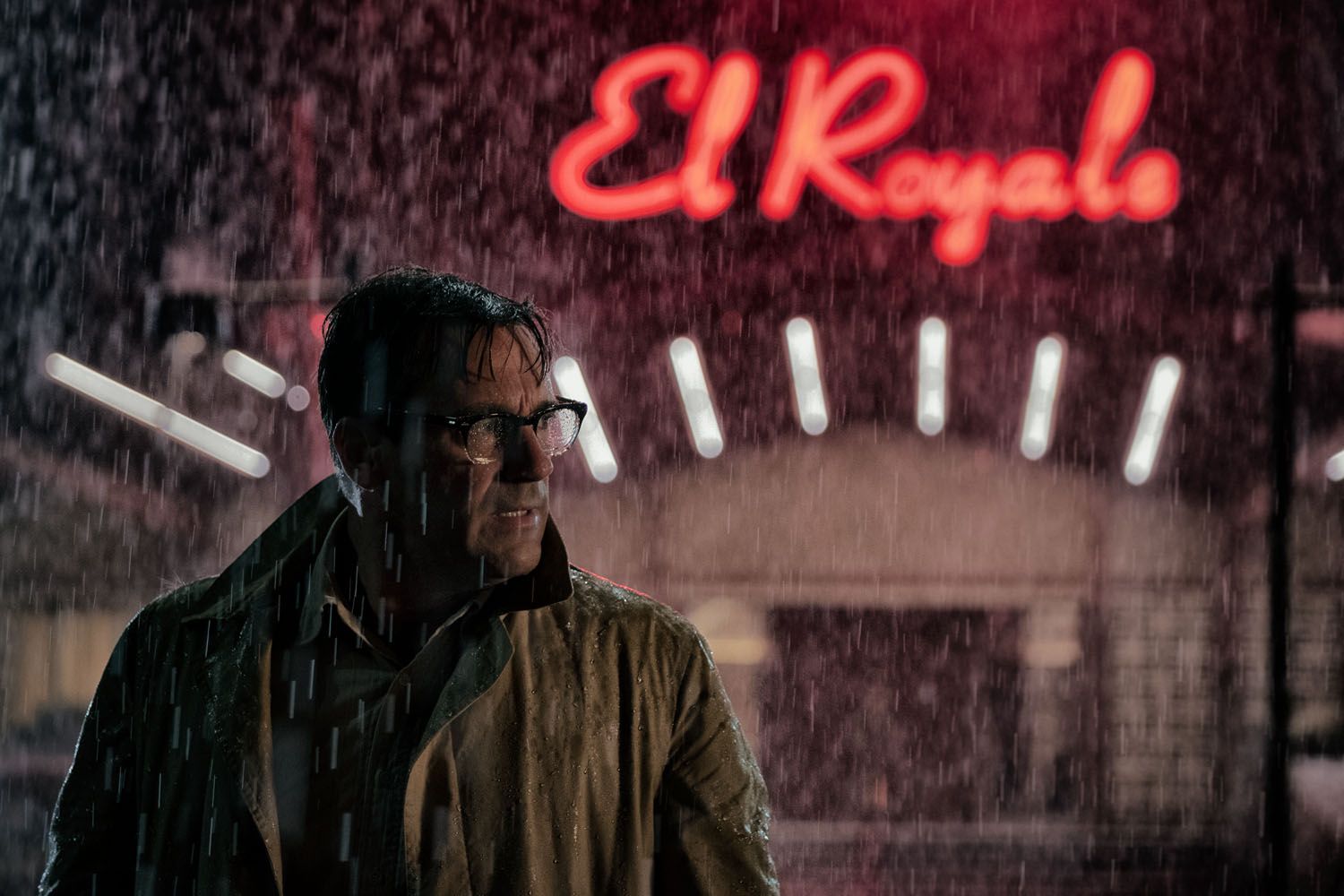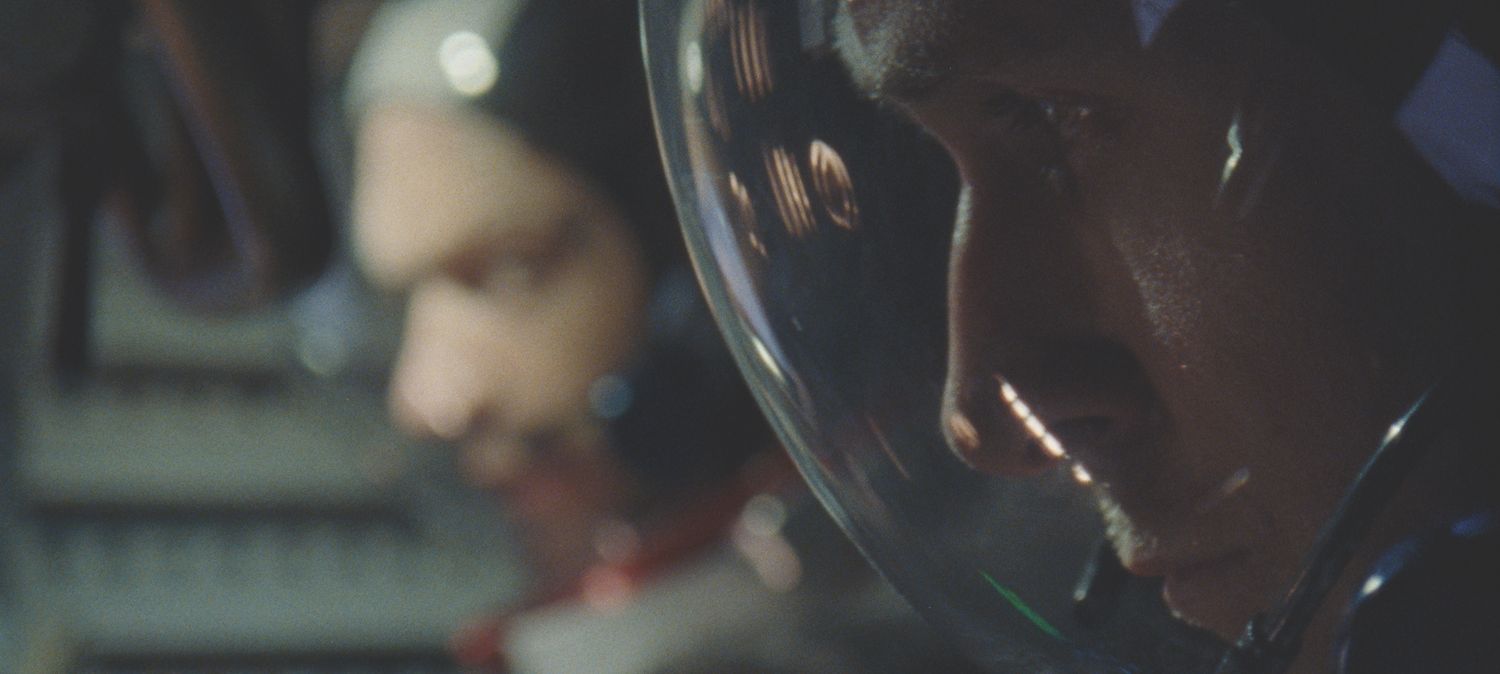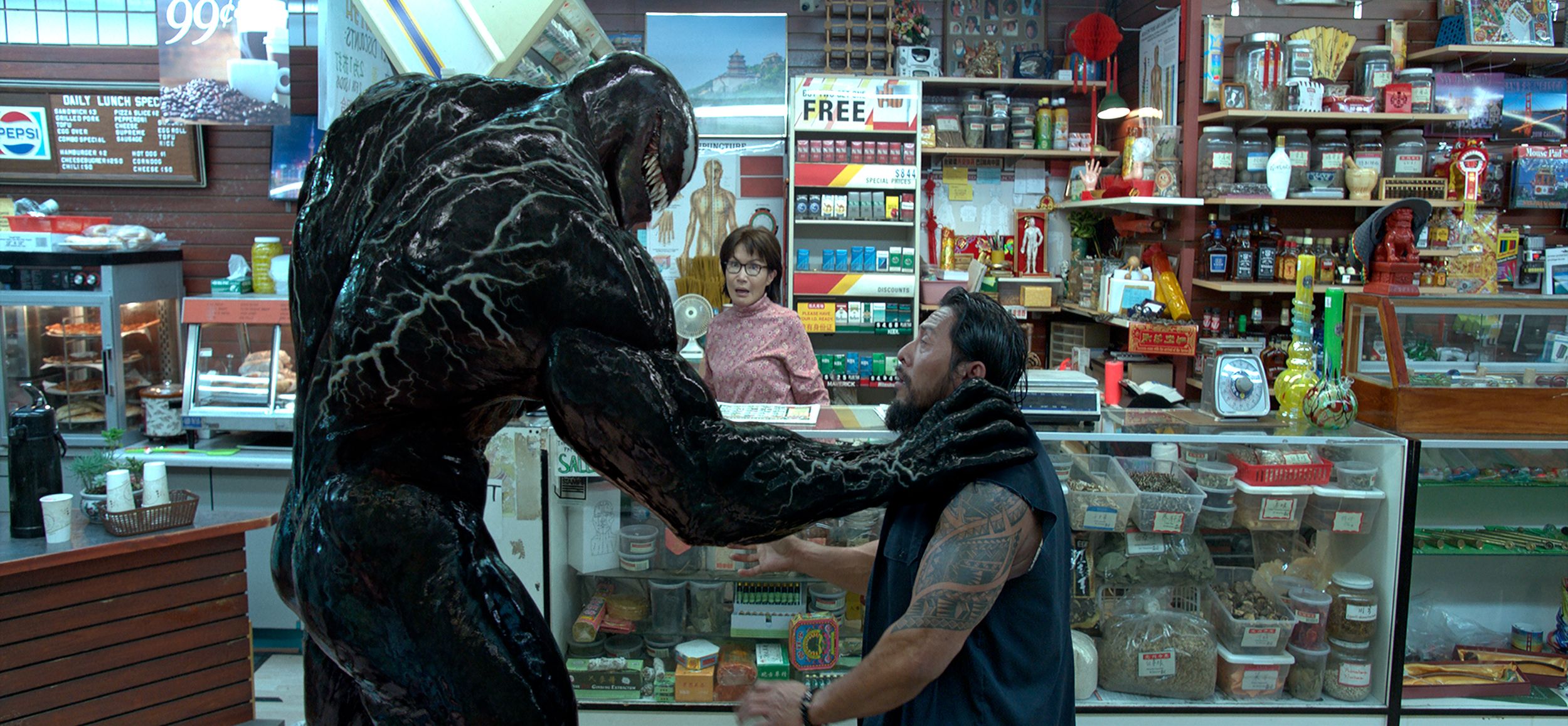If I was in the market for a corny opening line to frame this piece, I'd probably say 2018 is the year the YA adaptation finally grew up. After a decade devoted to chasing dystopian and monster metaphors of adolescent interactions with society's ills to increasingly tepid results -- the drop off from Twilight and The Hunger Games to this year's rote The Maze Runner: The Death Cure (though it had the series' best action scenes, for what that's worth) and The Darkest Minds (a disappointingly sluggish live-action debut for Kung Fu Panda 2's Jennifer Yuh Nelson) is stark -- they've started to turn away en masse from the superteens-save-the-world tropes. What started as novel became tired, and, The Fault in Our Stars aside, drifted further and further away from how teens actually live their lives. But this year serves to correct the trend. Even the most fantastical of the bunch, Every Day, director Michael Sucsy (The Vow) adapting David Levitan's book about a teenager who wakes up every day in a new body, stakes out new territory as a metaphor not just for the surging uncertainty of teen life in a troubled world, but for gender fluidity and the malleability of a person's physical presentation. After all, the young character falls in love with a sweet high schooler (Angourie Rice), but has to meet her again every day as a new sixteen-year-old -- a variety of races and sexes, each fleeting connection beaming with the same soul behind the eyes. The film works rather improbably, and at least is consistently trying something high concept and new. When it works, it really works. The same can be said of three other adaptations, even stronger for digging deeper, and hewing closer to the lived experiences of a variety of teens struggling to make sense of a very real world around them.
Take Greg Berlanti's adaptation of Becky Albertalli's Love, Simon, for instance. It got some positive notice for being a rare major Hollywood studio film about a gay romance, but that's not the full extent of what's driving this film. It's not as simple as a rom-com with one partner gender-swapped. The movie, light and bouncy, but with a direct, sentimental line to a receptive audience's swoons, builds a whole gimmick of storytelling architecture around a boy's struggle to come out. Simon (played with every ounce of white suburban normality Nick Robinson can bring) leaves a reply on a schoolmate's anonymous student gossip blog, writing the words of the big reveal without appending his name. Then, to his surprise, he gets a reply to his reply, from another closeted gay boy at his school. They enter an email pen pal relationship, so now the boy spends his normal procession of teen movie scenes -- classes, lunch hours, parties, dances, football games, the school play -- wondering which cute guy he is secretly falling in love with. The mystery has a pure and exhilarating feeling of first love, and captures the mood of any romantic high schooler whose affections are as strong as they are fickle. He is convinced he's in love with a handful of guys in turn, but as they reveal information that disqualifies them as a suspect, Simon cautiously backs out before coming out to them. It's a movie cut with the pop feeling of a big glossy teen movie complete with wall-to-wall syrupy narration and soft-rock soundtrack, a blackmail subplot, a gaggle of lovable friends (like BFF Katherine Langford, who may have a secret crush of her own), warmly supportive parents (Jennifer Garner and Josh Duhamel), and twinkly perfect upper-middle-class set design. There's an undeniable pull of emotion to the social pretzels into which Simon must twist himself before finally deciding to just be himself. It's a movie that strives in every second to make coming out seem at once something that makes Simon different, and yet exactly like everyone else. It makes the movie a comfortable and agreeable entertainment, immensely satisfying in its warm, funny, heartfelt coziness.
But if Love, Simon ultimately finds its emotions by making them specific yet widely applicable in a situation of discomfort but relative safety, The Miseducation of Cameron Post takes discovering sexual identity to a place more frank and more dangerous. It's set in the early 1990s, where high schooler Cam (Chloe Grace-Moretz) is caught in romantic fumblings with her girl friend (Quinn Shephard). She's not just struggling with coming out. Cam's struggling with survival, as her harshly religious family sends her to a Christian camp for gay conversion therapy, where she's told her desires are sinful and unnatural, something for which she deserves punishment and from which she needs to be cured. There amid the casual cruelty of the camp she finds many kids (played by the likes of Emily Skaggs and Christopher Dylan White) who earnestly wish to rid themselves of same-sex attraction, and a pair of friends (Sasha Lane and Forrest Goodluck) who are torn between wanting to wait out their time here and break free to be who they are. Written and directed by Desiree Akhavan, following up her small, chatty debut Appropriate Behavior, the adaptation of Emily M. Danforth's novel is practically trembling with empathetic insight. The young cast is shown in patient, direct shots that hold long enough to see their eyes melting with sympathy for one another. They're trying to stay supportive, and stay true to themselves, even though they can barely speak, let alone furtively act on, what they'd most like to admit. They can hardly explain or express what they really feel in this setting, and so they grow close through small talk, through singing along to the radio, through jazzercise, and mock-therapy sessions where truth sneaks in between the cracks of the propaganda of self-loathing they're fed. These kids aren't always insecure, but are feeling strong rushes of emotion, of connection, they can't parse in time to meaningfully express. It's a movie of characters whose confusions are deliberately perpetuated in a misguided attempt at correction, the disjunction between who they are and who they'll be. Because Akhavan is so attuned to the inner lives of her characters, giving the terrific ensemble space to grow and breathe at a natural rhythm, in a film so carefully modulated and shorn of easy melodrama or careless shock, the developments in interpersonal dynamics within the camp bubble up organically out of what we know of how these people think and behave. Even the camp's employees (Jennifer Ehle and John Gallagher, Jr.) are played tough and fair, shown as honestly committed to what they see as right, despite clearly being in the wrong. This character-focused approach, so tender and particular and kind, makes the film neither screed nor sermon. It's simply a clear-eyed look at these specific characters in this particular time and place. Satire and scorn -- which would, in the hands of a less confident and capable filmmaker, be entirely understandable, if less impactful, approaches -- are here eschewed for the simple patient power of observation. That's what makes it both persuasive and deeply moving. I rarely feel so close to characters as I did to these.
 Like Cameron Post, George Tillman, Jr's thoughtful adaptation of Angie Thomas's The Hate U Give approaches a sensitive subject from the characters out. It stars Amandla Stenberg as Starr, a 16-year-old girl growing up in a predominantly black neighborhood where poverty and its ill effects -- drugs, crime, violence -- are the reasons why her mother (Regina Hall) wants to send her kids to the white private school on the other side of town. A sense of duty to provide for their community is the reason why her father (Russell Hornsby) doesn't want them to move. He teaches his children to respect their blackness, to stand up for what's right, and to stay safe. Starr holds these truths to be self evident, though she is, like so many, an expert on code switching, shifting her slang and behavior when in her high school around her white upper class friends (all TV-actor pretty, like Riverdale's K.J. Apa and Girl Meets World's Sabrina Carpenter). She tells us she doesn't want to look "ghetto" to them, all the while cringing as they compliment her lit shoes and get down to R&B beats in the halls between classes. The movie builds a persuasive case about the indignities of racism and class -- about systemic injustice and staggering inequality -- by simply drawing out the facts of this girl's life. It's smartly situated in the personal, an undeniable understanding built from lived experience. Eventually there is conflict, as Audrey Wells screenplay efficiently reveals Starr's community to be constrained by the gangs that control her neighborhood. To get involved, even accidentally, with either one of them could spell disaster for her parents' big dreams of a better life. Both are groups of (mostly) men who will unfailingly protect one another, even in the face of an associate's over-the-line criminality, even and especially at the expense of the community. One is a gang of drug dealers (led by Anthony Mackie) who provide the illusion of easy money for so many disenfranchised youth in the neighborhood. The other is the police force, who circle the wagons when an officer kills an unarmed black man. Starr is caught between them, as a witness who could implicate both groups. The film plays out its smart, engaged, political story in an empathetic and emphatic style, not falling into easy message movie moralizing, but sitting squarely in the effect society's failings are having on one girl, on one family. Here's a movie set against the backdrop of a variety of ills -- racism, police brutality, poverty, addiction, disease, incarceration -- that never gets stuck in the misery. Tillman makes a film bursting with life, crackling with the warmth of a family and the complications of modern living. It's about a potential court case and a troubled community in mourning, but also about everyday parent-children discussions, and teen concerns about who is friends with whom and who is going to prom. Its big heart and studio movie gloss may lead it to state loudly and didactically some of its most important theses, but surely there are some things too important to risk not speaking clearly in a movie this generous, compelling, and widely accessible. It's a great entertainment with a lot on its mind.
Like Cameron Post, George Tillman, Jr's thoughtful adaptation of Angie Thomas's The Hate U Give approaches a sensitive subject from the characters out. It stars Amandla Stenberg as Starr, a 16-year-old girl growing up in a predominantly black neighborhood where poverty and its ill effects -- drugs, crime, violence -- are the reasons why her mother (Regina Hall) wants to send her kids to the white private school on the other side of town. A sense of duty to provide for their community is the reason why her father (Russell Hornsby) doesn't want them to move. He teaches his children to respect their blackness, to stand up for what's right, and to stay safe. Starr holds these truths to be self evident, though she is, like so many, an expert on code switching, shifting her slang and behavior when in her high school around her white upper class friends (all TV-actor pretty, like Riverdale's K.J. Apa and Girl Meets World's Sabrina Carpenter). She tells us she doesn't want to look "ghetto" to them, all the while cringing as they compliment her lit shoes and get down to R&B beats in the halls between classes. The movie builds a persuasive case about the indignities of racism and class -- about systemic injustice and staggering inequality -- by simply drawing out the facts of this girl's life. It's smartly situated in the personal, an undeniable understanding built from lived experience. Eventually there is conflict, as Audrey Wells screenplay efficiently reveals Starr's community to be constrained by the gangs that control her neighborhood. To get involved, even accidentally, with either one of them could spell disaster for her parents' big dreams of a better life. Both are groups of (mostly) men who will unfailingly protect one another, even in the face of an associate's over-the-line criminality, even and especially at the expense of the community. One is a gang of drug dealers (led by Anthony Mackie) who provide the illusion of easy money for so many disenfranchised youth in the neighborhood. The other is the police force, who circle the wagons when an officer kills an unarmed black man. Starr is caught between them, as a witness who could implicate both groups. The film plays out its smart, engaged, political story in an empathetic and emphatic style, not falling into easy message movie moralizing, but sitting squarely in the effect society's failings are having on one girl, on one family. Here's a movie set against the backdrop of a variety of ills -- racism, police brutality, poverty, addiction, disease, incarceration -- that never gets stuck in the misery. Tillman makes a film bursting with life, crackling with the warmth of a family and the complications of modern living. It's about a potential court case and a troubled community in mourning, but also about everyday parent-children discussions, and teen concerns about who is friends with whom and who is going to prom. Its big heart and studio movie gloss may lead it to state loudly and didactically some of its most important theses, but surely there are some things too important to risk not speaking clearly in a movie this generous, compelling, and widely accessible. It's a great entertainment with a lot on its mind.
